
It allows to keep PV going, with more focus towards AI, but keeping be one of the few truly independent places.
-
Prolycht company wanted to repeat famous Toshiba move with 4 color panels.
In reality it is quite cheap software paired with standard leds (RGB), plus additional color leds.
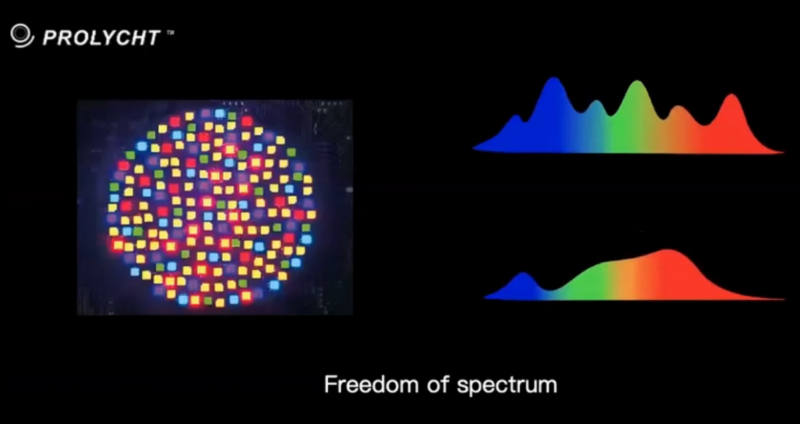
Idea is quite nice and simple, of course not for the price they ask, as cost to manufacture is not much different to RGB light.
But it is still affordable for pro sets, not for amateurs.
All cost for now comes from marketing expenses, very small sales and inefficient production.
Issue is that additional color space coverage is almost total bullshit for real purposes - and this was their initial marketing claims. They backed off later.
Next they move to the talks of better skin tones, effectively presenting color spectrum that is same as any cheap CRI 96 cheap light (for around 20% cost of their product).
As Mitch has been told that it is lie and Sunlike diodes scientifically are much superior all this guy did is deleting data and banning further responses.
Guys, it is leading marketing guy and promoter. Who actually do not know much and do not care about product and image of it (and I must say it is quite innovative product!). Why you hire him at all? For his personal links?
Just compare this:
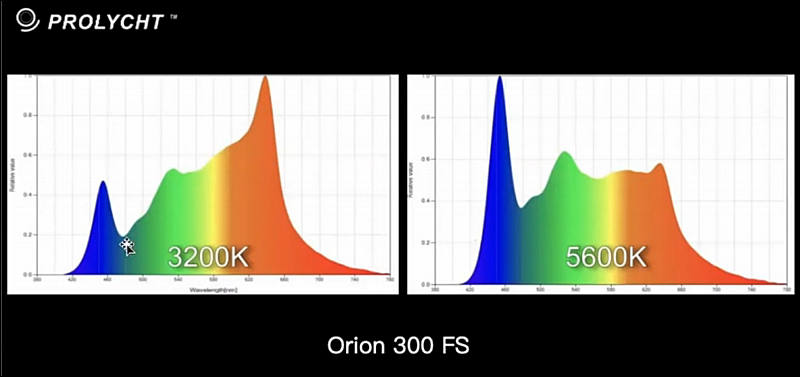
Note huge red peak, same blue peak as usual, and even green peak - they came from used tech that can't make more even spectrum in this areas.
to cheap CRI 96 white leds
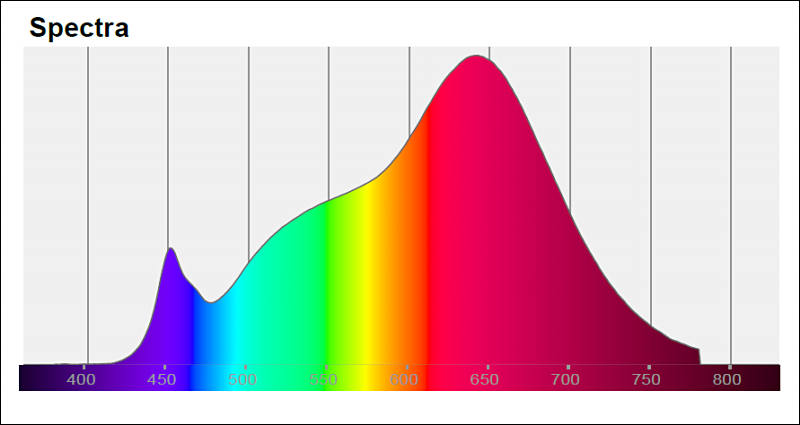
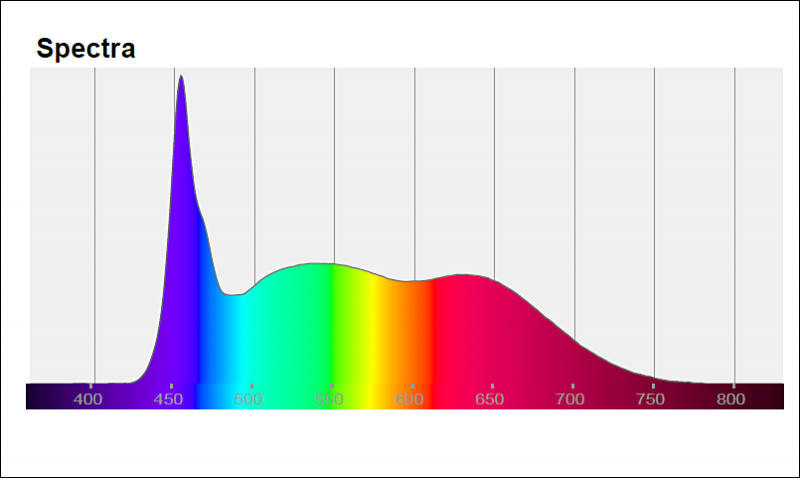
And now to really sunlike diodes
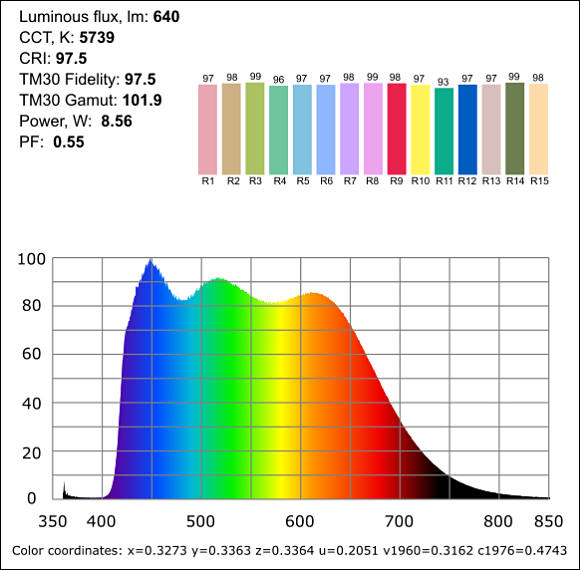
Do you see their huge issue?
Their light is much inferior to real full spectrum led.

 sa19467.jpg800 x 424 - 31K
sa19467.jpg800 x 424 - 31K
 sa19468.jpg800 x 377 - 32K
sa19468.jpg800 x 377 - 32K
 sa19464.jpg580 x 570 - 56K
sa19464.jpg580 x 570 - 56K -
Still video is useful:
Short clip on light
-
Are there any affordable products with those "real sun-like diodes"?
-
Yes, look for such E26/e27 lamps (9-13 watts usually). You can put them in 4-5 sockets inside softbox and it is not bad and very cheap.
On Aliexpress yo can find 4w-100w COBs with full spectrum also.
-
From Aputure
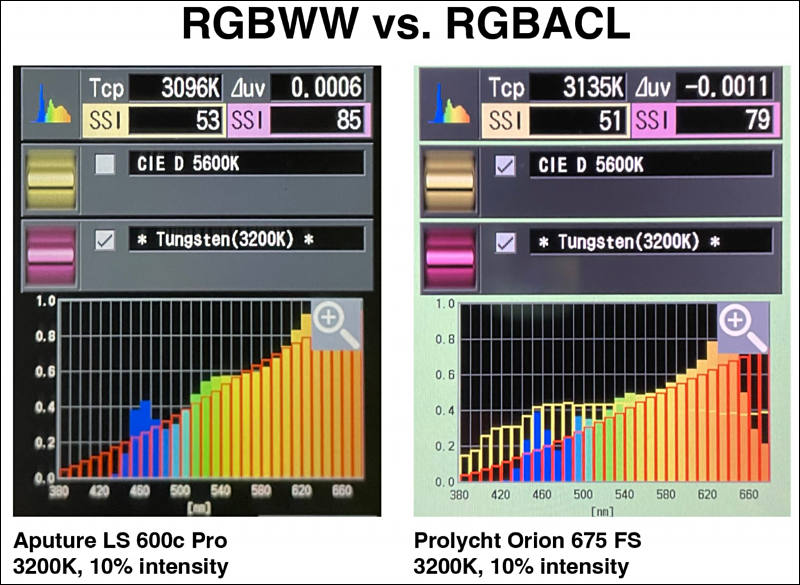
[RGBWW vs. RGABCL] Hey guys, Ted here. I am seeing a lot of misinformation out there on the topic of RGBACL vs. RGBWW, so here is some data, plain and simple. This lays out exactly why when given the option, we choose RGBWW. But to start, here are the SSI scores between the ARRI Orbiter and Prolycht Orion 300 FS, which are both RGBACL lights.
ARRI Orbiter (@ 10% Intensity)
- 5600k: 75 SSI
- 3200k: 84 SSI
Prolycht Orion 300 FS (@ 10% Intensity)
- 5600k: 66 SSI
- 3200k: 75 SSI
Note: Not all RGBACL lights are the same. Just as we know that all single color LEDs are not the same in quality, we need to remember that diode selection has a significant impact as we can see in the difference in SSI scores above.
To be clear, these are two fixtures that have already been released on the market and cannot be improved upon (unless either company wants to change their color science again). You can do these tests yourself.
RGBWW produces a Better Spectrum. To go one step further, here are the SSI scores we tested of the Aputure LS 600c Pro vs. the ARRI Orbiter vs. the Prolycht Orion 675 FS. The 675 FS reading was taken on the NAB 2022 show floor where yes, I admit that light pollution can be an issue. But the results did not change much, and our process was consistent: 1m in distance on the show floor, 10% intensity and black photo tape snoot to block ambient light. The testing device was a Sekonic C-7000.
ARRI Orbiter (@ 10% Intensity)
- 5600k: 75 SSI
- 3200k: 84 SSI
Aputure LS 600c Pro @ NAB 2022 (@ 10% Intensity)
- 5600k: 72 SSI
- 3200k: 85 SSI
Prolycht Orion 675 @ NAB 2022 (@ 10% Intensity)
- 5600k: 69 SSI
- 3200k: 79 SSI
SSI measures Color Fidelity. Specifically the area of the difference between the spectrum of a source and "perfect" version of the light standard. It is the highest testing standard beyond CRI and TLCI. SSI measures the actual spectrum itself and is what the scientific community refers to for the accuracy of claims.
This means that the LS 600c and RGBWW produce better skin tones, which we chose because 90% of the time filmmakers use these fixtures to light people and faces, not buildings and architecture. You will also note that in our tests, the color performance of the Aputure 600c is similar to the Orbiter. That said, that difference in SSI is marginal and reinventing this system takes a lot of time. So why did we choose RGBWW? I talked about this in interviews, but here it is again.
Color Matching Across Fixtures. Most lights do not match between brands. You can try this for yourself. Dial in any HSI number to two different fixtures and look at the difference. With multiple color engines, this problem will occur with lights even from the same brand. Yes, software can be used to match between fixtures on a point-by-point basis or via an algorithm. However, this will still not cover transitions and colors will drift any time that you want to have your lights change in unison.
Actual RGBACL Benefits. The only place where RGBACL does benefit over RGBWW is in the saturation of a few colors. However, this comes at the direct expense of brightness (light generated by the phosphor of blue diodes has the highest efficiency of any LED), and remember, the engine itself does not improve color fidelity or SSI.
Do Your Own Tests. In the comments, I will post all of these readings again plus additional charts if you would like to see them.
If you're here at NAB, bring a meter and feel free to do these tests for yourself. We have one more day here tomorrow and will also be at Cinegear. We can help facilitate whatever additional testing you would like to see.

 sa7048.jpg800 x 585 - 98K
sa7048.jpg800 x 585 - 98K -
Our NAB coverage
Howdy, Stranger!
It looks like you're new here. If you want to get involved, click one of these buttons!
Categories
- Topics List23,971
- Blog5,724
- General and News1,347
- Hacks and Patches1,153
- ↳ Top Settings33
- ↳ Beginners255
- ↳ Archives402
- ↳ Hacks News and Development56
- Cameras2,360
- ↳ Panasonic990
- ↳ Canon118
- ↳ Sony155
- ↳ Nikon96
- ↳ Pentax and Samsung70
- ↳ Olympus and Fujifilm100
- ↳ Compacts and Camcorders300
- ↳ Smartphones for video97
- ↳ Pro Video Cameras191
- ↳ BlackMagic and other raw cameras117
- Skill1,961
- ↳ Business and distribution66
- ↳ Preparation, scripts and legal38
- ↳ Art149
- ↳ Import, Convert, Exporting291
- ↳ Editors191
- ↳ Effects and stunts115
- ↳ Color grading197
- ↳ Sound and Music280
- ↳ Lighting96
- ↳ Software and storage tips267
- Gear5,414
- ↳ Filters, Adapters, Matte boxes344
- ↳ Lenses1,579
- ↳ Follow focus and gears93
- ↳ Sound498
- ↳ Lighting gear314
- ↳ Camera movement230
- ↳ Gimbals and copters302
- ↳ Rigs and related stuff272
- ↳ Power solutions83
- ↳ Monitors and viewfinders339
- ↳ Tripods and fluid heads139
- ↳ Storage286
- ↳ Computers and studio gear560
- ↳ VR and 3D248
- Showcase1,859
- Marketplace2,834
- Offtopic1,319




